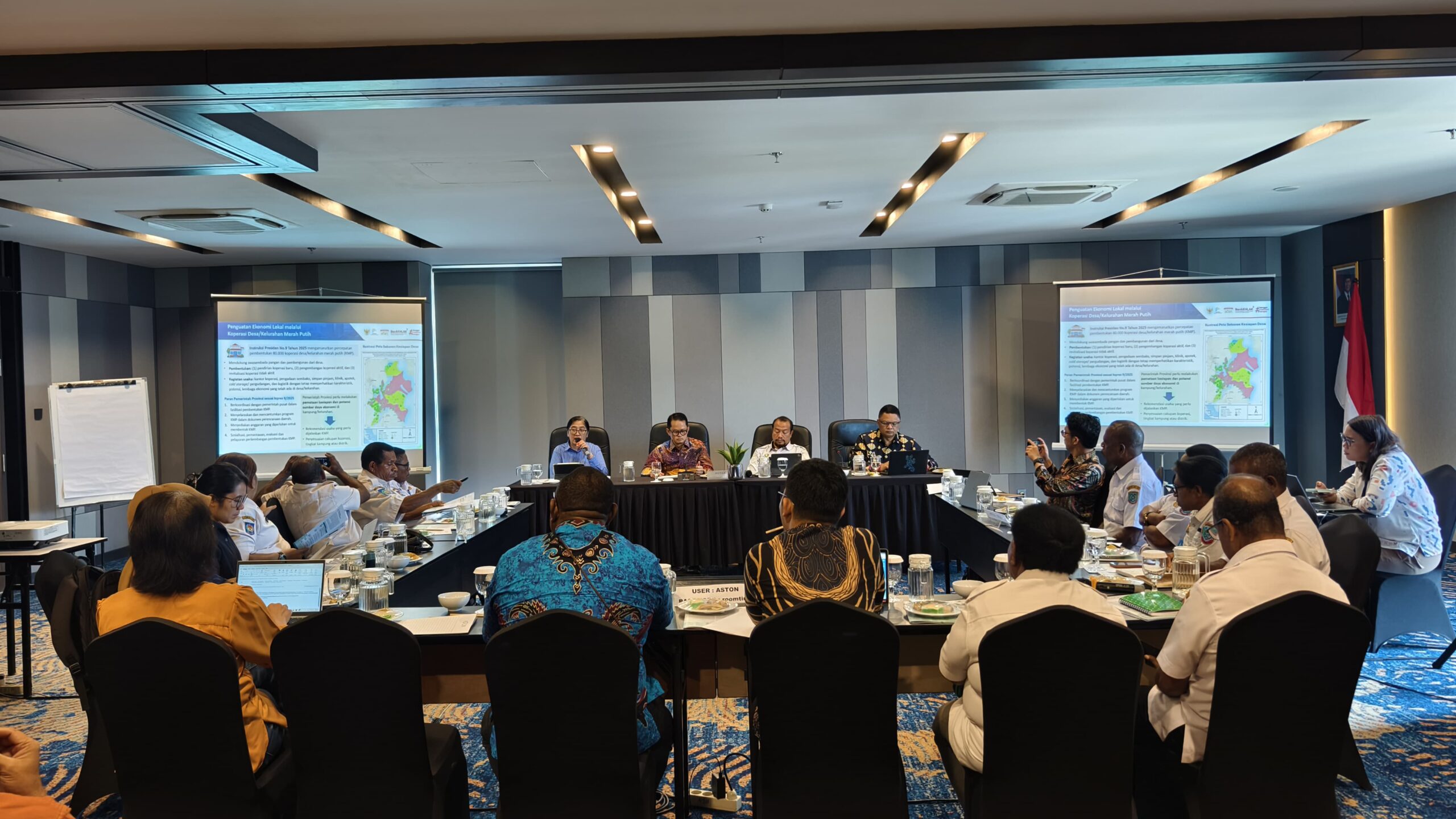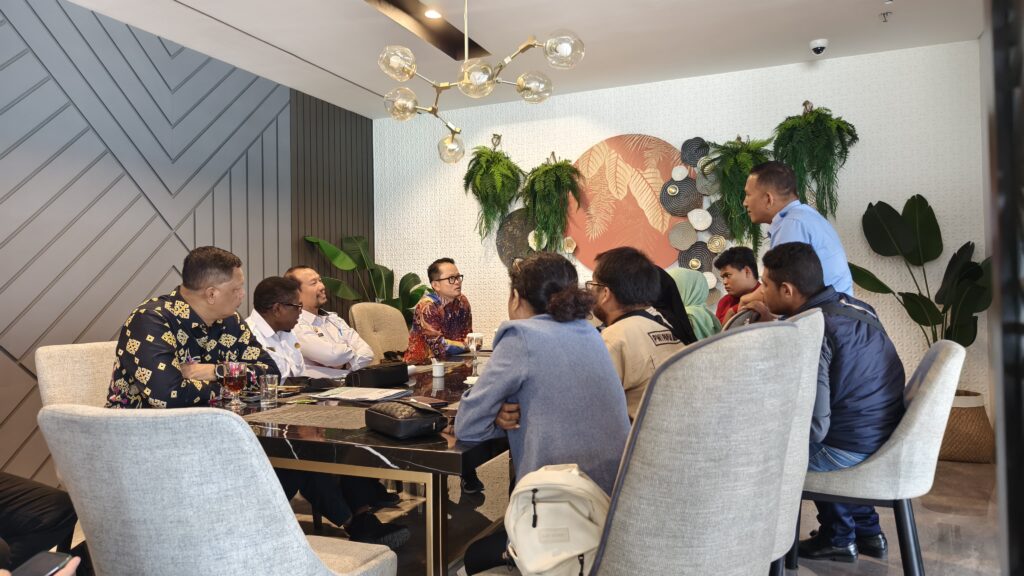Building an Inclusive Future Through Knowledge Management in Papua Barat Daya

Papua Barat Daya, one of Indonesia’s youngest provinces, was established in late 2022 with a vision for inclusive and sustainable growth. But the path forward is not without challenges. With a Human Development Index of 69.65 in 2024 and a poverty rate that hovers at over 16% (BPS), the region faces several hurdles, and is working to implement targeted, responsive development strategies.
Against this backdrop, the Government of Papua Barat Daya, supported by Bappenas and the Australia–Indonesia Partnership Program SKALA, is investing in an often-overlooked but powerful tool: knowledge. Knowledge that is not only collected, but shared, used, and kept alive through collaboration. The aim is simple but transformative: to ensure that public policy decisions are informed by real data, real stories, and real experience from the ground.
Knowledge Management for Better Decisions
Earlier this month, more than 40 representatives from provincial agencies, Bappenas, Universitas Negeri Papua (UNIPA), and the SKALA program came together in Sorong for a Knowledge Management (KM) session. The purpose was to begin shaping a provincial Knowledge Management Center (KMC), a hub where lessons, data, and innovations can be systematically gathered and used to improve services and strengthen planning.
At the heart of the discussion was how the KMC could serve as a bridge between policy and practice. Participants raised a number of practical ideas. These included: collecting and sharing documentation of knowledge and experiences across units in provincial government, and dissemination of good practices from other areas across Indonesia by central government. Officials also emphasized the importance of documenting local best practices, especially those that have successfully reached vulnerable communities, as a way to inspire replication across districts.
For a province as geographically complex and demographically diverse as Papua Barat Daya, these systems are essential. Rahman, Head of the Provincial Development Planning, Research, and Innovation Agency (BAPPERIDA), made the stakes clear:
“We must ensure that central planning documents can be implemented in real terms in the regions. One example is the problem of poverty. Currently, the poverty rate in Southwest Papua is still in the range of 16.48% to 17.03%, while the national target is 8%. This is a big challenge that we must face with smart work, hard work, and fast work.”
In line with that, Deputy for Community Empowerment, Population, and Employment of the Ministry of PPN/Bappenas Maliki, emphasized the importance of synchronization between national policies and their implementation in the regions.
“The direction of national policy must be translated into regional programs. In fact, if regions have a better approach, they can contribute more to national targets.” he said.
UNIPA also expressed strong support in contributing knowledge, especially through its Faculty of Medicine in Papua Barat Daya, which supports government programs in basic health services. The consensus was strong: good development depends not only on financial resources, but also on how well knowledge is used.
Communicating for Change
To raise awareness of inclusive development, the provincial government, Bappenas and SKALA held a follow-up media briefing with local journalists. The goal was to share what’s being done and why it matters with a wider public.
Petrarca Karetji, Team Leader of SKALA, added: “We emphasize the importance of synergy and collaboration between various parties, both at the central and regional levels. In addition, we also pay attention to how existing systems can be utilized to run and develop basic services effectively.”
By inviting the media into the conversation, Papua Barat Daya is building transparency and strengthening public ownership of development. More importantly, it is turning knowledge into action and laying the groundwork for smarter, fairer governance across the province.








